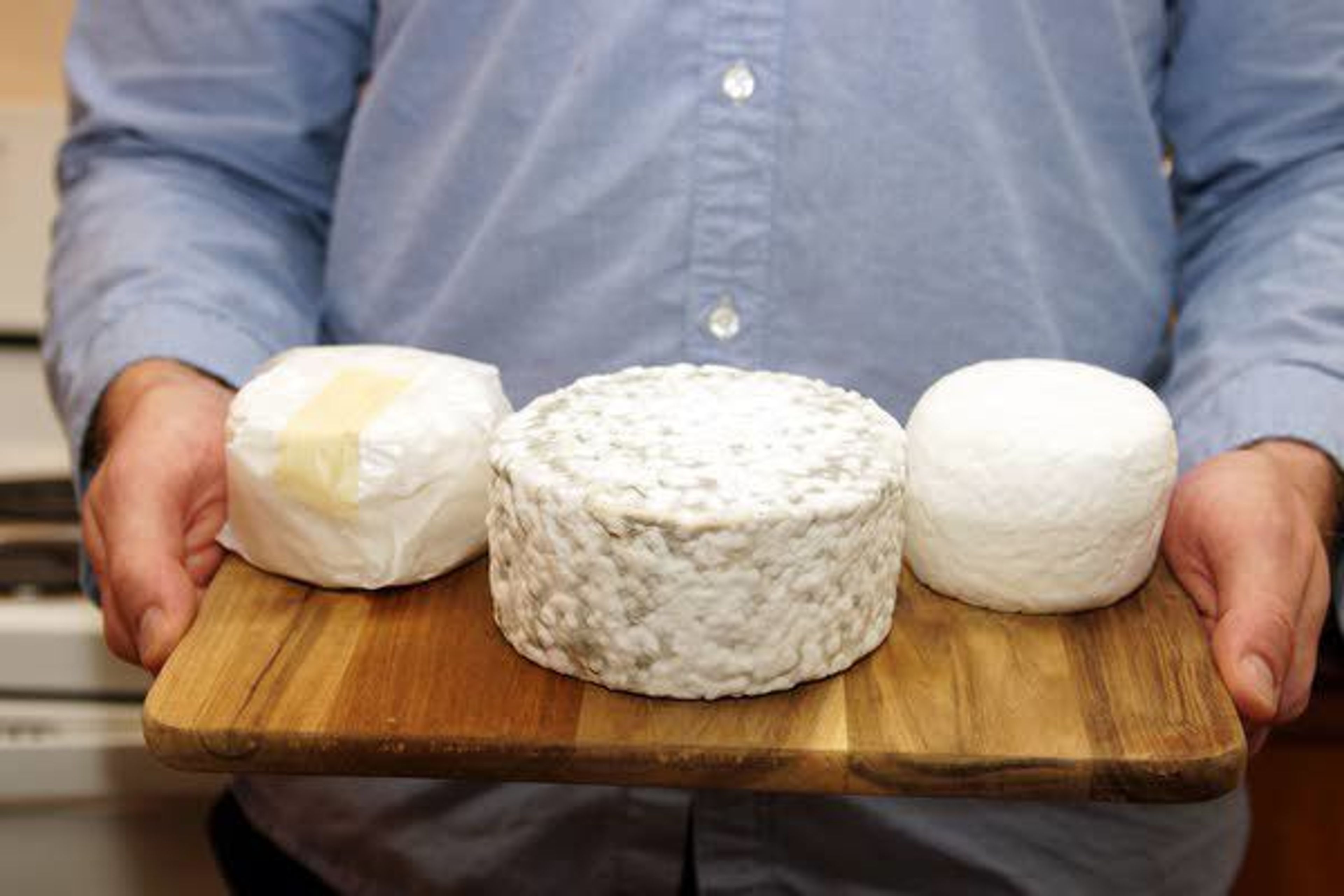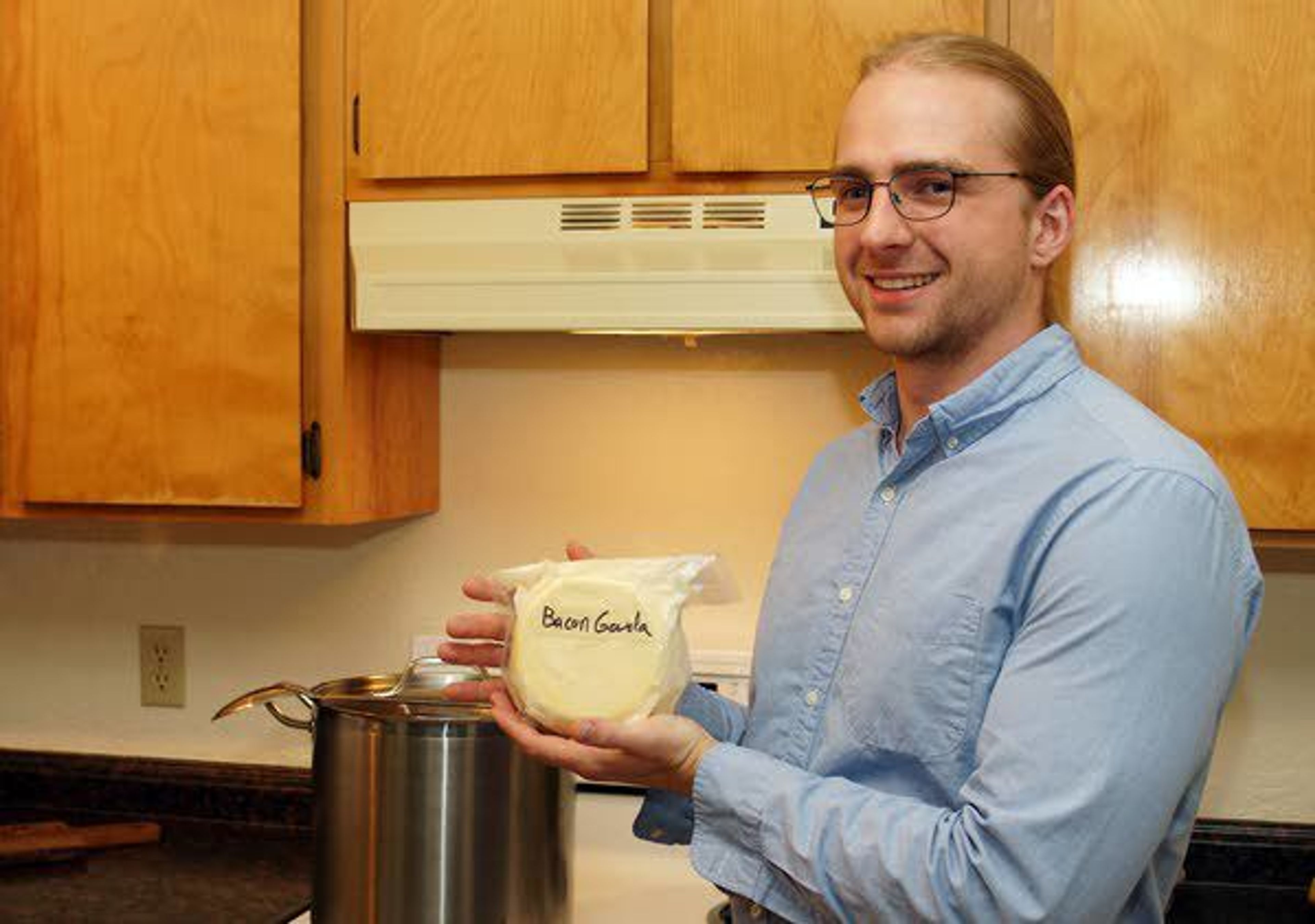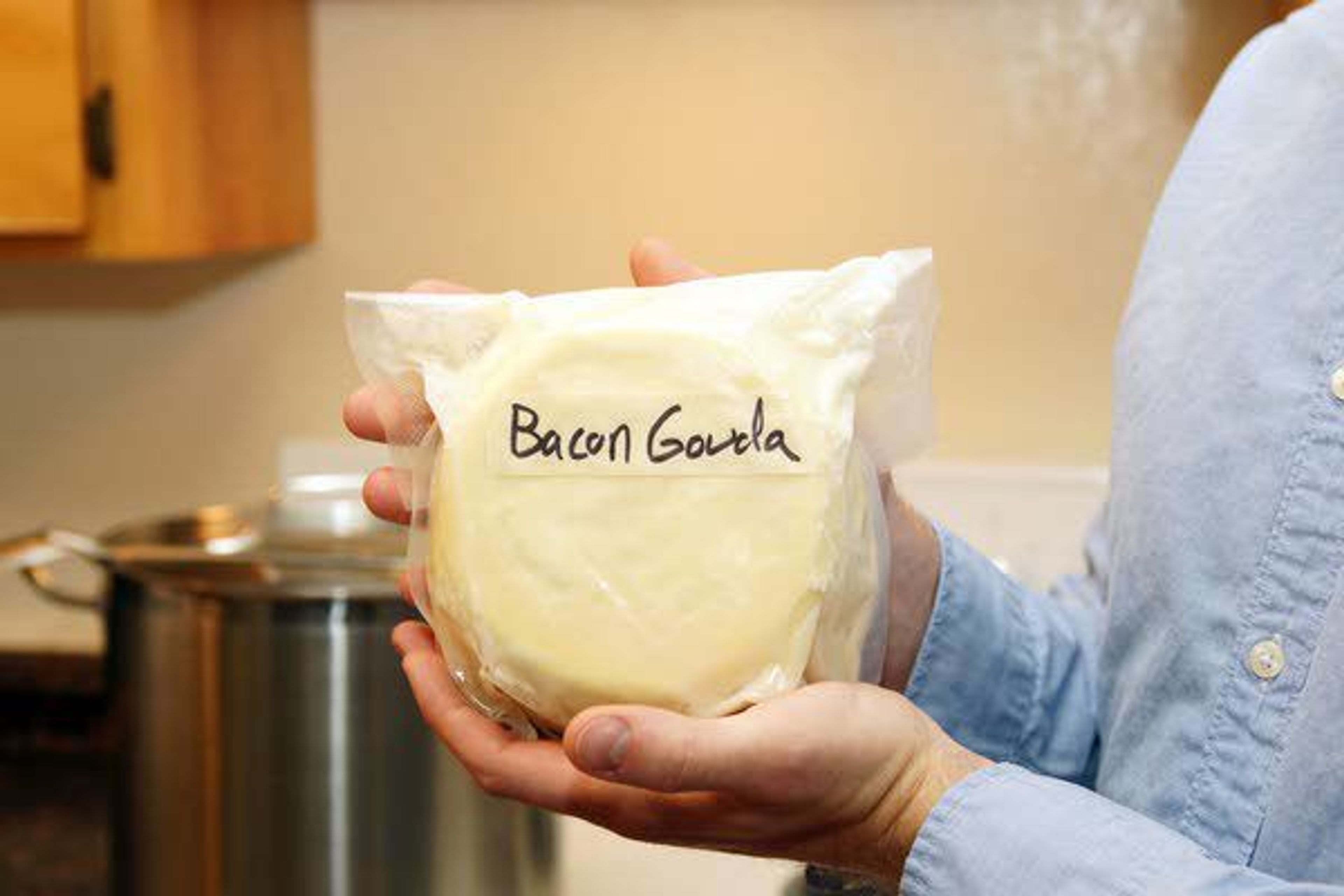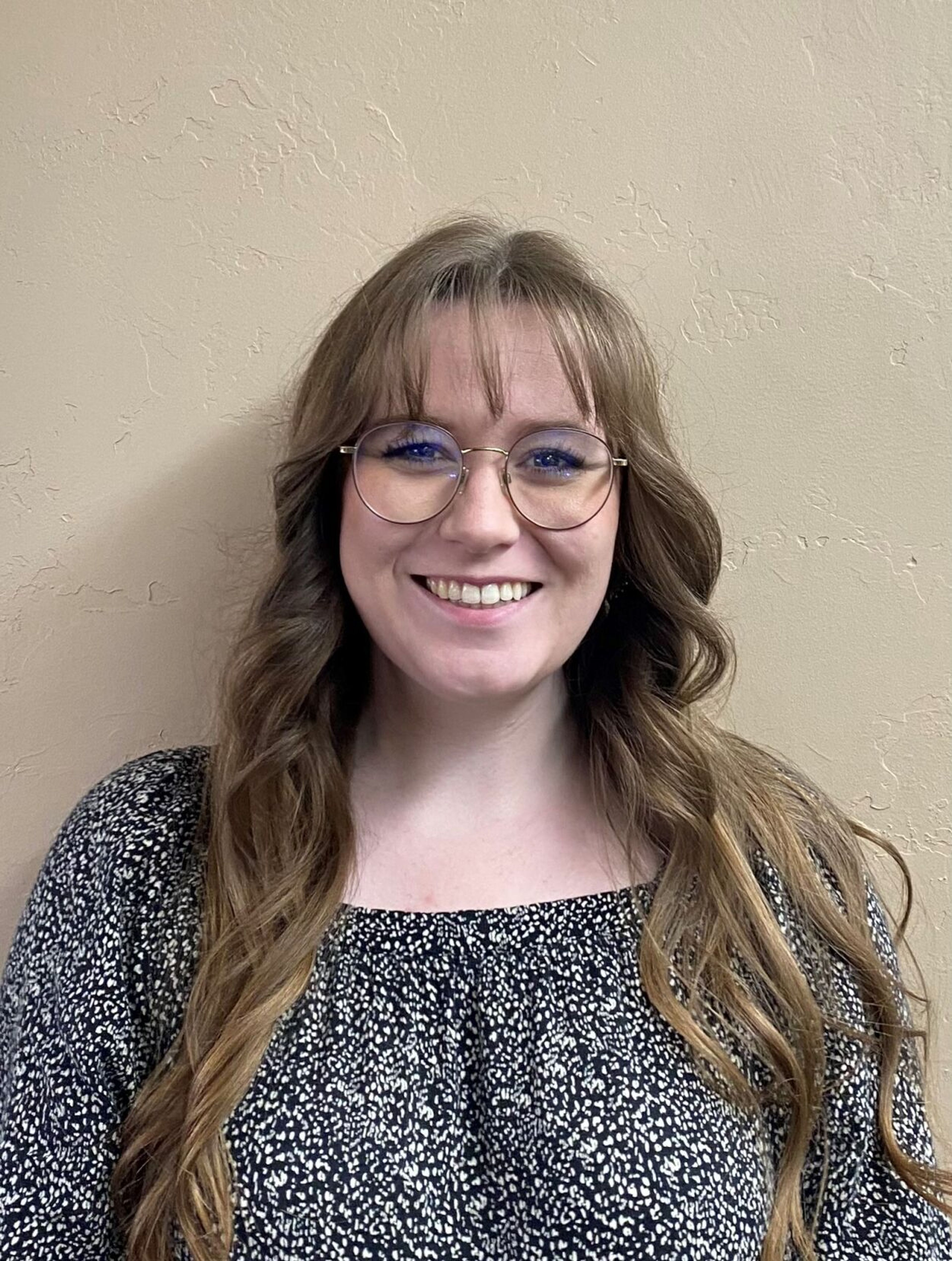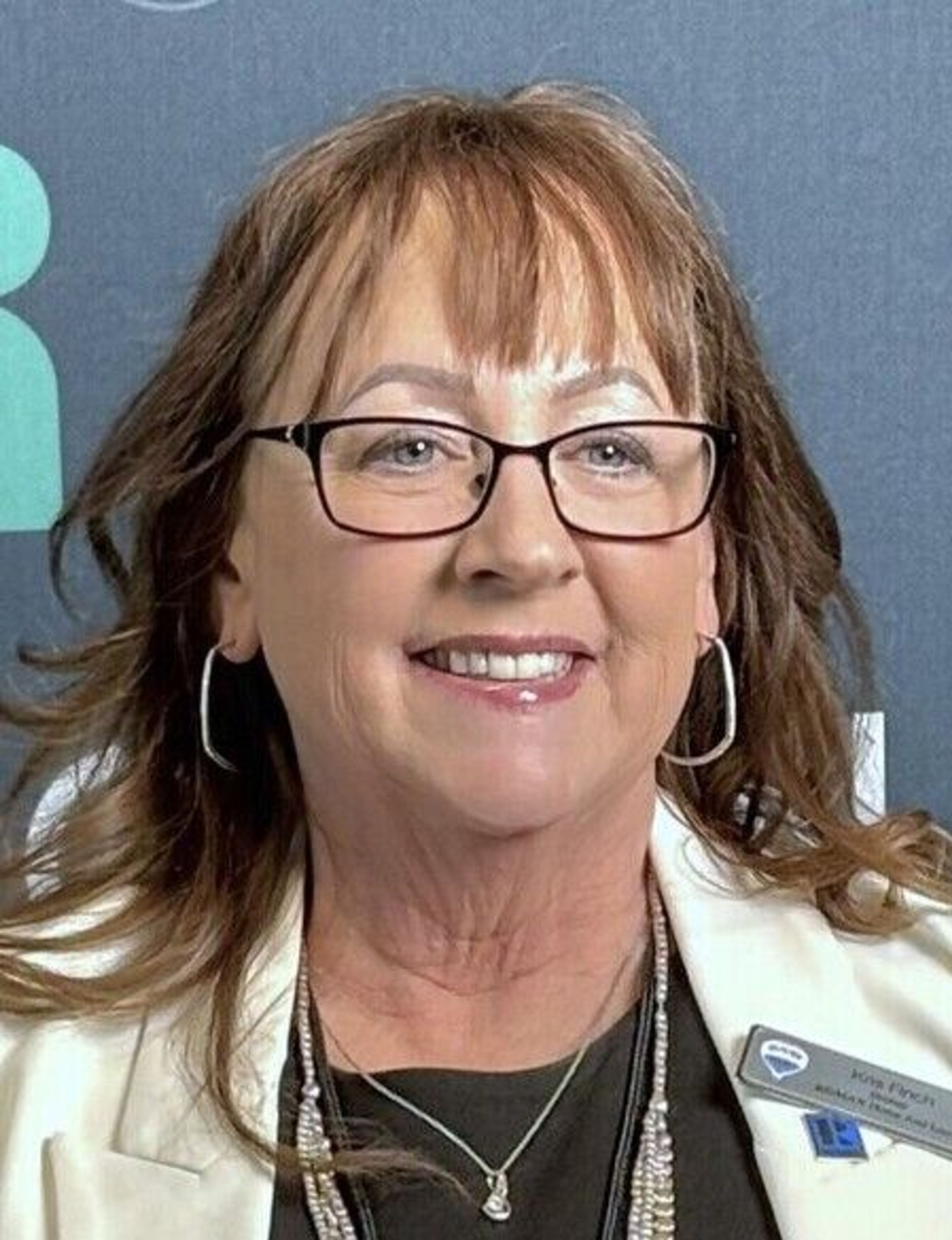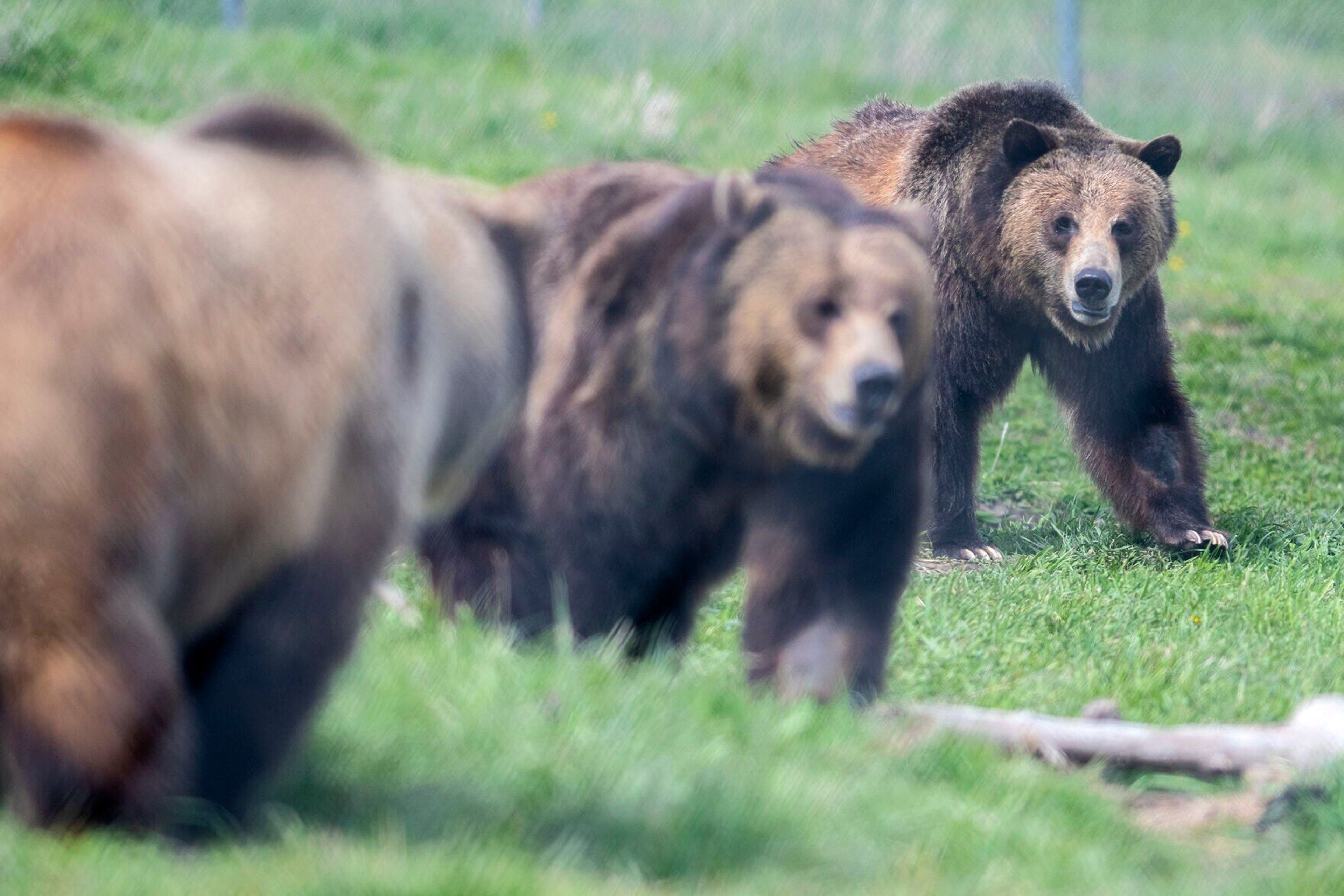Jobe's Cheese Lab practices cheesy chemistry
WSU neuroscience doctoral student displays cheesemaking talents onYouTube channel
One fateful Thanksgiving break, Portland State University psychology student Jobe Ritchie got inspired, decided to try making cheese and failed miserably.
However, Ritchie - now a Washington State University neuroscience doctoral student - isn't a quitter. So he kept making cheese and eventually started posting videos of himself experimenting with different types on his YouTube channel, Jobe's Cheese Lab, in June.
"Being a scientist isn't necessarily just a career, it's a way of seeing the world," Ritchie said. "Scientists are used to trial and error ... I had one failure, and it got me excited to not have more failures."
In the following months, Ritchie began brainstorming recipe videos for cheese lovers who aren't experimentally inclined. In these videos, Ritchie shows viewers how to make common cheeses and use them in recipes like fettuccine and pumpkin pie cheesecake.
"Jobe's Cheese Lab is all about doing experiments with cheese and also using cheese in recipes," Ritchie said. "It's about having an open mind to changing different steps in the process of making cheese and questioning long-held traditional beliefs within the cheesemaking community."
Because of how difficult cheesemaking is, Ritchie said it was easy for someone with a scientific mind like him to become interested in it.
"Cheese is an extremely scientific process. You're introducing enzymes, molds and bacterias that are breaking down proteins, lipids and sugars into different molecules, and that's what gives cheese its flavor," Ritchie said. "From just a few simple ingredients, you can create the thousands and thousands of cheese that exist in the world."
Ritchie said the most common ingredients used in cheesemaking are salt, milk, mold cultures and rennet, which contains the enzyme chymosin typically found in the fourth stomach of newborn cows and aids in the curdling process.
Since he began making videos, Ritchie said many of the people he shares his experimental cheese with will ask him about his business plans.
"Some of my relatives will ask when I'm opening up my cheese shop, and I'm like, 'I'm getting a Ph.D. in neuroscience, I'm never going to open up a cheese shop,' " Ritchie said. "My passion is about eating cheese and creating videos to inspire people - this is something I enjoy in my free time."
Though he has little interest in pursuing a career in cheesemaking, Ritchie loves all things cheese and being part of the cheesemaking community, which he said has been supportive of his work. He hopes to promote his channel through giveaways, T-shirts and other merchandise in the future.
"I wouldn't be making cheese if I didn't love it," Ritchie said. "I am not scared to just really eat a lot of cheese. I put cheese on everything. I eat cheese straight."
Even a voracious cheese-eater like Ritchie has a hard time eating pounds and pounds of cheese, however, and the dairy product typically tastes better after it has been aged, he said. So Ritchie ages his cheese in a small refrigerator controlled by a gauge that keeps it at 54 degrees, the sweet spot for cheese affinage - the art of cheese aging.
And Ritchie's favorite cheese to make? Gouda, though he said he hasn't been that successful at it.
"I think the reason is it's my favorite cheese to eat, too," Ritchie said. "A really long-aged gouda, after a couple years, gets this amazing sort of caramel taste and color."
Check out Ritchie's channel at youtube.com/jobescheeselab.
Alysen Boston can be reached at (208) 883-4624, or by email to aboston@dnews.com.
